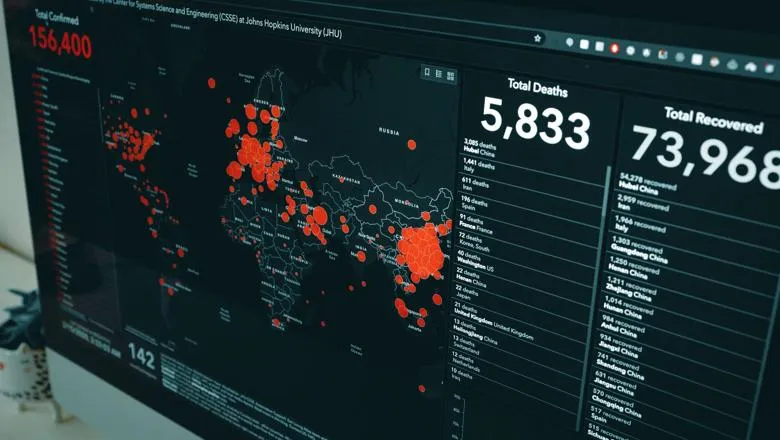New paper led by King's academics says political and uneven access to scientific knowledge affected public trust and paved the way for 'alternative knowledge'.

Responding to the UN's objective to 'Build Back Better' from COVID-19, academics from King's Department of Geography have suggested that rethinking how we use and share scientific knowledge could help to improve our societies.
Looking at how information and data influenced politics and society throughout the pandemic, the paper suggests a need for more transparency in the future.
It explains that throughout the pandemic, access to scientific knowledge has remained uneven and political. As a result, how people, businesses and governments have interacted with information has differed, with information being presented as factual often being undermined.
Multiple narratives created through policies and the media, as well as governments often picking and choosing science to match their response, paved the way for 'alternative knowledge'. Consequently, this has affected people's trust in authority, which in turn has had the potential to exacerbate gaps already existent in society.
We have seen a rise in fake news and distrust in information from some parts of society during the pandemic. Greater transparency with the public about how we use, shape and share science would go some way to help address this as we try to build back better from COVID-19.– Professor Mark Pelling
The paper also argues the dashboard-driven approach from governments and the availability of simplified data sets to the public (for example the R number) has obscured a more complex reality, not taking local knowledge and circumstances into account. It suggests that as we recover from the pandemic, we should look at how we can use technologies to record and communicate data sets that can give a fuller picture of the situation.
As the complexities of the pandemic gave rise to more local responses, the paper in Progress in Human Geography also explores how this can influence the future of our society post pandemic.
This includes the legacy of self-organising community groups, such as the feminist groups who highlighted the adverse effects COVID-19 had on women, from the increase in domestic violence incidents to the economic impact on caregivers.
The paper was authored by King's academics from the Department of Geography: Professor Mark Pelling, Dr Helen Adams, Dr George Adamson, Dr Alejandro Barcena, Dr Maud Borie, Dr Anshu Ogra, Dr Faith Taylor, Sophie Blackburn (now at Oxford Brookes University), Dr Amy Donovan (now at University of Cambridge) and Lu Yi (now at Sichuan University).






